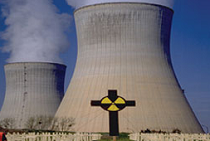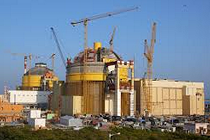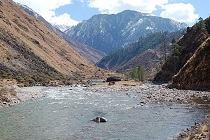 Courtesy: http://photodivision.gov.in/
Courtesy: http://photodivision.gov.in/
Last week, petroleum prices reached a five-year low, and the fall is likely to last as new production and alternative sources enter the market. India, which has a huge petroleum products bill, now has a chance to shock-proof its economy, diversify dependence away from West Asia, and become energy-efficient
On 12 November the U.S. President Obama and Chinese President Xi Jinping signed a climate a deal to reduce green house gases by 2030. Amit Bhandari, Energy and Environment Fellow, Gateway House, comments on the impact of the deal on India's position on climate change negotiations going forward.
On 12 November the U.S. and China announced a Climate deal along the sidelines of the APEC Summit. Amit Bhandari, Energy and Environment Fellow, Gateway House, comments on the significance of the deal.
 Courtesy: wikimedia
Courtesy: wikimedia
The fall in oil prices is creating new complexities for the energy exporting economies of West Asia. With smaller profits, these countries may not be able to buy off political dissent at home and fund client governments and rebels abroad. Lower energy prices could also mean a renewed chance for peace
On 18 October the Indian government announced it would deregulate the price of diesel and allow it to move to market conditions. Amit Bhandari, Energy and Environment Fellow, Gateway House, explains the impact of this change.
On 18 October the Indian government announced it would deregulate the diesel and formalising the price formula for natural gas. Amit Bhandari, Energy and Environment Fellow, explains the impact of this change.
 Courtesy: wikimedia
Courtesy: wikimedia
India’s power sector is currently facing a coal shortage with Coal India unable to keep pace with demand. Nuclear power is a cheaper and more reliable alternative for generating electricity as compared to coal
 Courtesy: Wikimedia.org
Courtesy: Wikimedia.org
Bringing U.S. nuclear technology to India is a goal identified in the countries’ joint vision statement. Although public discourse on the India-U.S. nuclear deal has focussed on the liability clause, the pact’s success also depends on resolving other factors such as local sourcing, technology transfer and project delays
 Courtesy: Wikimedia\Floyd Rosebridge
Courtesy: Wikimedia\Floyd Rosebridge
Cooperation in the energy sector offers a chance for India and the U.S. to build on a mutually beneficial and complementary relationship. The U.S. will gain from having a large, long-term market while India will benefit from cheaper and more diversified energy sources
 Courtesy: Wikipedia\commons
Courtesy: Wikipedia\commons
Indian Prime Minister Narendra Modi hit all the right notes in his landmark visit to Nepal this week. Modi’s announcement of hydropower being a key area of synergy in the bilateral will help India solve its electricity shortage and also provide the country a renewable energy import from a friendly neighbour









